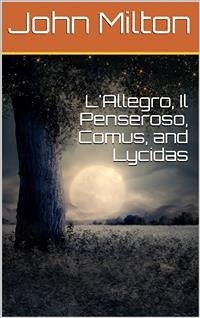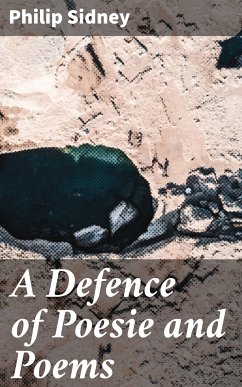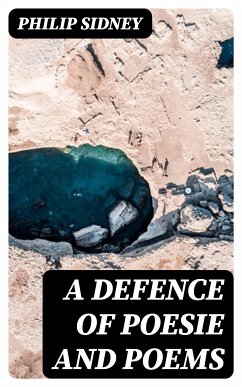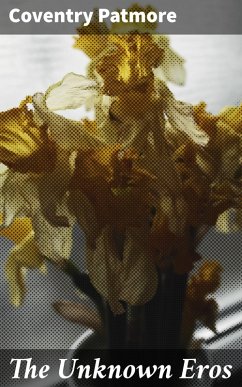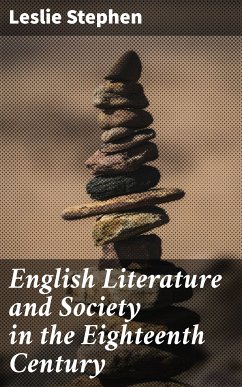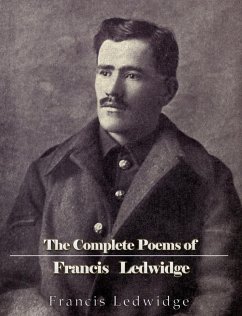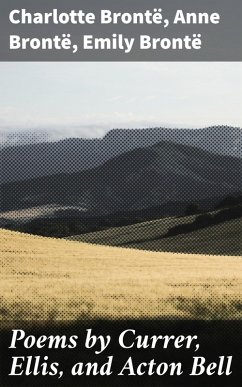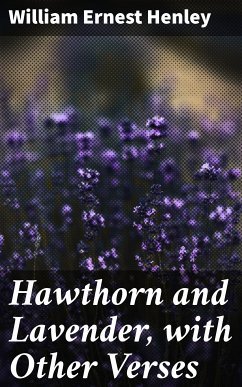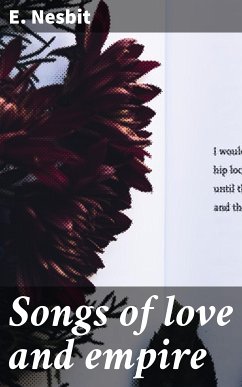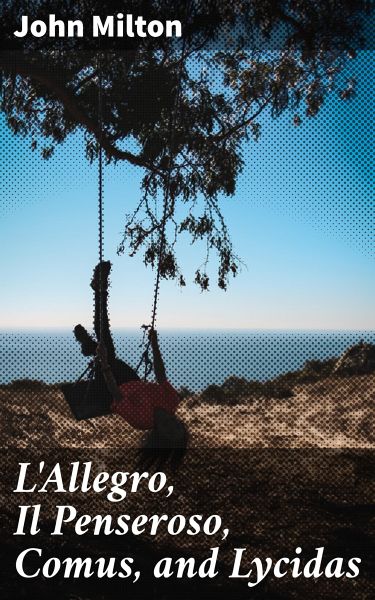
L'Allegro, Il Penseroso, Comus, and Lycidas (eBook, ePUB)
Enriched edition. Exploring Joy, Melancholy, and Temptation: Poetic Themes in Milton's Masterpiece Collection
Kommentar: Becker, Shane / Redaktion: Good Press
Sofort per Download lieferbar
0,49 €
inkl. MwSt.
Weitere Ausgaben:

PAYBACK Punkte
0 °P sammeln!
In this remarkable collection, John Milton showcases his profound versatility and mastery of poetic form through four distinct yet thematically interconnected works: 'L'Allegro,' 'Il Penseroso,' 'Comus,' and 'Lycidas.' Each poem engages with contrasting human experiences'-joy and melancholy, reason and imagination, and the transience of life. Written in vibrant and intricate verse, Milton's styling balances classical influences with emerging Renaissance ideals, particularly emphasizing the interplay between virtue and vice. The pastoral elegance and philosophical depth of these pieces reflect ...
In this remarkable collection, John Milton showcases his profound versatility and mastery of poetic form through four distinct yet thematically interconnected works: 'L'Allegro,' 'Il Penseroso,' 'Comus,' and 'Lycidas.' Each poem engages with contrasting human experiences'-joy and melancholy, reason and imagination, and the transience of life. Written in vibrant and intricate verse, Milton's styling balances classical influences with emerging Renaissance ideals, particularly emphasizing the interplay between virtue and vice. The pastoral elegance and philosophical depth of these pieces reflect Milton's deft skill in blending allegory with lyrical beauty, all while inviting readers to contemplate the moral and existential nuances present within the human condition. John Milton (1608-1674) was a key figure in the English Renaissance, whose works were often influenced by his fervent political views, deep religious convictions, and a personal tragedy that left him blind in later years. His early education at Cambridge and exposure to a myriad of classical texts and contemporary thought deeply informed his poetry. Notably, 'Lycidas,' written as a pastoral elegy for a fallen friend, reveals Milton's early exploration of loss, while 'Comus' incorporates themes of temptation amidst a backdrop of social commentary, reflecting Milton's engagement with the pressures of his time. This collection is an essential read for anyone interested in the evolution of English poetry and the ways in which Milton's early works laid the groundwork for his later masterpieces such as 'Paradise Lost.' Readers will find in these poems a rich tapestry of themes that resonate through time, inviting reflection on the nature of joy, contemplation, temptation, and mortality. Milton's ability to articulate complex emotions and philosophical quandaries makes this collection not only a treasure trove of literary artistry but also a profound exploration of the human experience. In this enriched edition, we have carefully created added value for your reading experience: - A comprehensive Introduction outlines these selected works' unifying features, themes, or stylistic evolutions. - The Author Biography highlights personal milestones and literary influences that shape the entire body of writing. - A Historical Context section situates the works in their broader era-social currents, cultural trends, and key events that underpin their creation. - A concise Synopsis (Selection) offers an accessible overview of the included texts, helping readers navigate plotlines and main ideas without revealing critical twists. - A unified Analysis examines recurring motifs and stylistic hallmarks across the collection, tying the stories together while spotlighting the different work's strengths. - Reflection questions inspire deeper contemplation of the author's overarching message, inviting readers to draw connections among different texts and relate them to modern contexts. - Lastly, our hand-picked Memorable Quotes distill pivotal lines and turning points, serving as touchstones for the collection's central themes.
Dieser Download kann aus rechtlichen Gründen nur mit Rechnungsadresse in A, B, BG, CY, CZ, D, DK, EW, E, FIN, F, GR, H, IRL, I, LT, L, LR, M, NL, PL, P, R, S, SLO, SK ausgeliefert werden.




